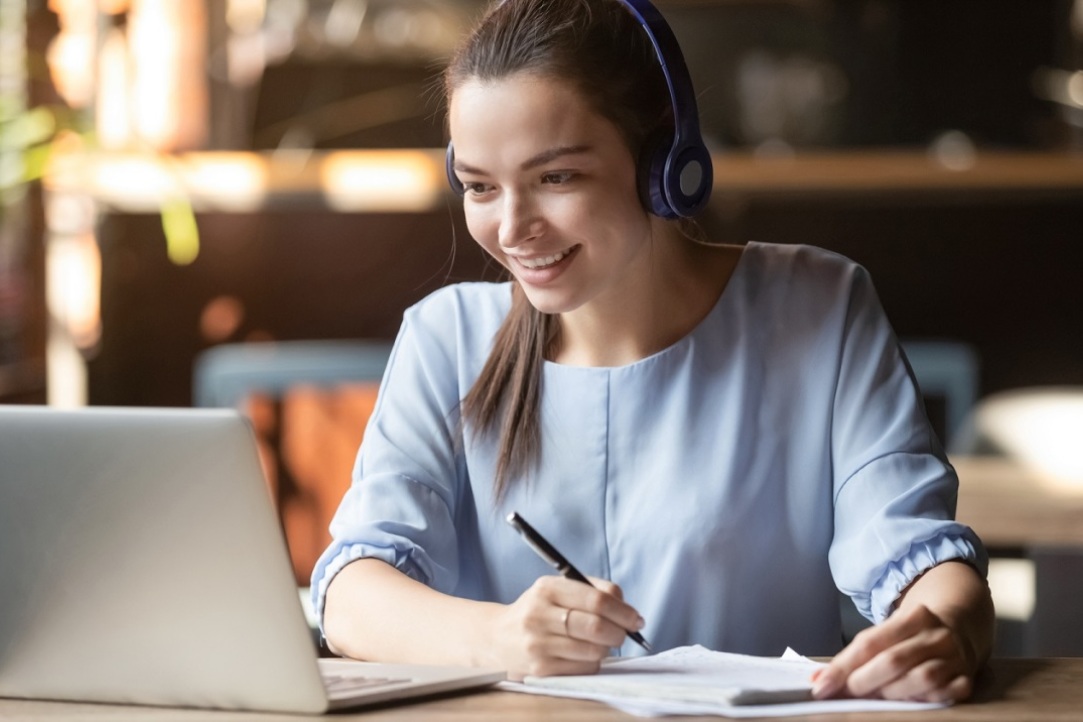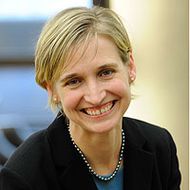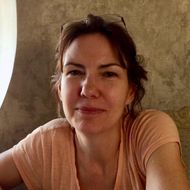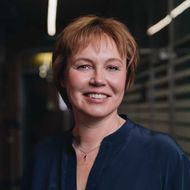'In the Modern World, Being able to Work in an International Team Is Crucial'
Students of HSE University – St. Petersburg participated in the Global COVID Research Project of Connecticut College, devoted to the studies of the consequences of the COVID pandemic in different spheres. Interdisciplinary teams representing five universities worked on their research skills and gained experience working as part of an international team.

Forty-two students of different backgrounds took part in a project implemented by Connecticut College (USA) together with HSE University – St. Petersburg, Ashesi University (Ghana), the University of Hong Kong (China), and Ashoka University (India). They were divided into 8 small groups according to their research interests – education, environment, inequality, activism, and policy.
One of the project coordinators, Andrea Lanoux told that the project came about immediately after the onset of the pandemic in March 2020. When it became obvious that it would be difficult to forecast when onsite international programmes would resume, a team from Connecticut College decided to connect college students with their peers from all over the world in a virtual environment around the subject, which had already become very personal for everyone. In autumn 2020, Dr. Lanoux held a first seminar called Global COVID for the students, which became the basis for the project. The second phase of the project was implemented in collaboration with students from four international partner organizations, including HSE University – St. Petersburg. The second phase was implemented for 10 weeks from early January till early April 2021.

Amy Dooling, Associate Dean of Global Initiatives, Connecticut College
Obviously, the project was born out of the awful necessity of the global pandemic. But not being able to send students abroad to study or intern has forced us to get creative and think outside the box when it comes to international education. And what we are discovering this year is that virtual international exchange programs like this have the potential to offer real learning experiences. 42 students who applied to the project did so because they were interested in researching the impacts the pandemic is having on their own lives and their wider communities, but in working together with diverse global peers they got to experience in a deeply authentic way what it means to navigate cultural and linguistic differences, how to engage in collaborative work across disciplines, national boundaries, and world times zones, and why intercultural competencies are so important in the world today.
The results of the student research are published on the project website. The organizers hope that they will be relevant not only for the authors but that they will be included in the general list of sources for COVID-19, which will be studied by scientists for years to come. Still, an even more important result is the skills acquired by the young researchers over the course of joint work: the ability to communicate, listen to each other and take into account different points of view, the integration of knowledge and information, and project management.

Andrea Lanoux, Director of the Toor Cummings Center for International Studies & the Liberal Arts, Connecticut College
We are very pleased with the results! This was an experiment to see whether students would find the work to be valuable and meaningful to them. For the most part, students seemed to get a lot out of the experience.
We would like to continue the project, possibly as early as summer 2021, although we have not yet discussed the details. What we learned from phase two is that project-based research with international partners is a very promising direction in global education. We look forward to discussing possible next steps with our institutional partners in the weeks and months ahead.
The project received an enthusiastic response from the participants. The lecturers noted the exchange of views that took place after the presentation of the project components, during which the problems and benefits of international cooperation were discussed. Teams had to deal with linguistic and cultural differences, complex group dynamics, uneven access to research materials and technology, and the logistics of communication between the world's time zones. Still, many of them noted the joy of finding common ground and new ways of thinking that arose from different perspectives on the topics they jointly explored.
Ariana Fagmieva, 2nd-year student, Sociology and Social Informatics
In the project, I worked in the 'Policy' group. Our team conducted a comparative analysis on the topic 'How are COVID-19 mitigation policies and virus control measures affecting the mental health of people in China, Indonesia, Italy and Russia?' Due to the fact that only a year had passed since the beginning of the pandemic, it was not easy to find scientific material. Nevertheless, the process itself was very entertaining and the final result met all expectations!
The project gave me a completely new and very useful experience, which, I am sure, will be useful in the future. It was very interesting to work in an international team that included students with different cultural backgrounds and to get acquainted with the traditions of different countries. It became easier for me to understand people and to compromise. I was amazed by the openness and friendliness of my colleagues — for example, at the very beginning of the first team video call, someone complimented my hair. It's funny to remember, but how surprised and embarrassed I was back then!
The most difficult part for the team was to agree on the time of the video calls due to the time zone difference. The solution was to record video meetings in a team diary so that those who were absent could quickly navigate and join the workflow. Now I have the ability to work exclusively in a distance format and in different time zones. In the modern world, this skill, as well as being able to work in an international team, is crucial.
Natalia Zaitseva, 4th-year student, Law
Our team chose Plastics as a research subject in the Environment direction, within which I had the subtopic 'COVID-19 and business approach to sustainability in the aspect of plastics'. It was especially interesting to explore organizations’ approaches to trying to balance between the need to pursue sustainable development goals, new restrictive policies that encourage the use of disposable materials due to the country's difficult epidemiological situation, and trying to make a profit in difficult market conditions.
I have positive impressions from participating in the project, because in the course of studying a topical and interesting subject, I gained international research experience. Thanks to close communication with students from different countries, I got acquainted with different cultures. In general, I can describe the members of my group as disciplined, responsive, active and interesting individuals. From the very beginning, we defined the rules for teamwork, so there were no problems, everyone treated the appointments and the fulfilment of their tasks with respect.
Irina Shlegel, 2nd-year student, History
I learned about the project from a lecturer of English, so the initial goal for me was to practice the language. Then I got interested in the topic 'Education in the era of COVID-19', and I already wanted to see what the pros and cons of distance learning were for students from five countries: France, Russia, Zimbabwe, the Czech Republic, and Vietnam. I must say that working with girls from different countries provided an incredibly rewarding experience. At general meetings, we not only discussed the work on the article but also tried to know each other better — our cultures, our views on certain things, stories from everyday life, just funny moments. This allowed us to maintain friendly relations even after the end of the work on the project.

Irina Schemeleva, Dean of Saint Petersburg School of Arts and Humanities, Deputy Director for Internationalization
There is a long history of collaboration between HSE University - St Petersburg and Connecticut College: back in 2009 and 2011 we already had joint teleconference courses in Russian and American Youth Culture. Today this has become regular practice, but at that time, it was a real innovation. Those courses showed us that when students from different countries study together (even virtually) and implement joint projects, they acquire 'first-hand' knowledge about each other, their cultures, and countries, and they get invaluable experience of intercultural communication, which cannot be guaranteed even during an onsite visit sometimes.
The most important asset acquired by the participants of the Global Covid Project are the real skills of intercultural communication and working in a multinational team, as the project involved the representatives of five universities from all over the world. Participants needed to learn to come to terms and listen to each other. I am very grateful to our colleagues from Connecticut College for this initiative!
Irina Shchemeleva

